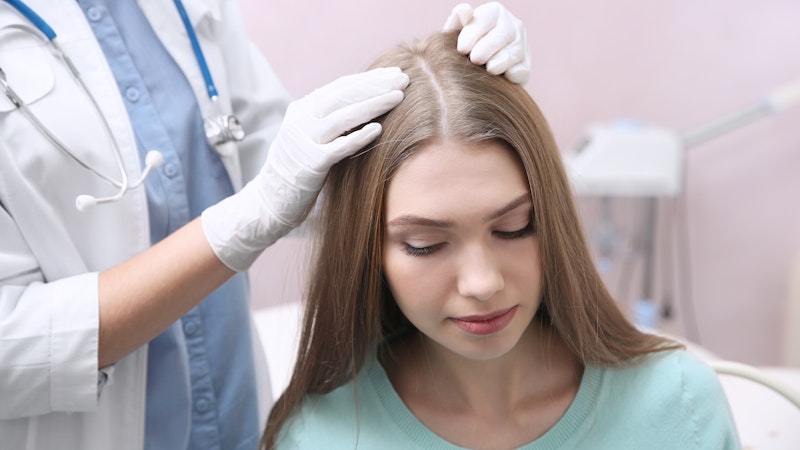Dandruff is a common scalp condition that affects millions of people globally. Characterized by flaky skin, itchiness, and sometimes even scalp inflammation, dandruff can range from mildly irritating to severely distressing. This is where consulting the Best Trichologist in Dubai can provide a new and more effective approach to managing the condition.A trichologist is a specialist who focuses on problems related to the scalp and hair. Unlike general dermatologists, trichologists are specifically trained to understand the complex interactions between hair health and scalp conditions. Their role in treating chronic dandruff goes beyond prescribing anti-dandruff shampoos.
Understanding Chronic Dandruff
Chronic dandruff differs from occasional flaking in both severity and persistence. It doesn’t respond well to simple treatments and often returns even after short periods of relief. The condition is usually marked by consistent itching, excessive white or yellow flakes, and scalp redness. In more advanced cases, the flaking may extend beyond the scalp to areas such as the eyebrows or sides of the nose.
The Role of a Trichologist in Managing Chronic Dandruff
Trichologists approach scalp health with a high degree of specificity. During a consultation, they will typically conduct a detailed scalp analysis using tools like trichoscopes to magnify and examine the scalp surface. This helps identify the type of dandruff—whether it is dry, oily, fungal, or related to another underlying skin condition.
Treatment Process for Chronic Dandruff
Treating chronic dandruff through trichological care is a multi-step process that involves targeted therapies, scalp detoxification, and long-term management strategies.
Initial Consultation and Diagnosis
The treatment process begins with an in-depth consultation, during which the trichologist will ask about the duration and severity of symptoms, dietary habits, stress factors, and any previous treatments that were tried. They may also use microscopic tools to examine the scalp closely. If the condition appears to be linked to hormonal imbalances or nutritional deficiencies, further testing may be recommended.
Scalp Detox and Cleansing
Once the type and severity of dandruff have been determined, the first phase usually involves a deep cleansing treatment. Specialized exfoliating and purifying products are applied to remove dead skin cells, excess sebum, and fungal buildup. This step not only helps clear visible flakes but also prepares the scalp for subsequent treatments by allowing better absorption of active ingredients.
Anti-Fungal and Anti-Inflammatory Treatments
Depending on the root cause, topical solutions containing ingredients like zinc pyrithione, ketoconazole, salicylic acid, or tea tree oil may be applied. These help to reduce fungal overgrowth, minimize inflammation, and soothe the irritated scalp. In some cases, UV light therapy or other advanced scalp treatments may be used to reduce microbial presence and encourage healing.
Nutritional and Lifestyle Guidance
Trichologists often emphasize the importance of internal health in managing chronic scalp conditions. Recommendations may include incorporating foods rich in omega-3 fatty acids, zinc, and B vitamins. They might also advise reducing sugar and processed food intake, which can contribute to inflammation and fungal growth. Managing stress through meditation, exercise, and proper sleep is often a key part of the treatment plan.
Customized Hair Care Regimen
A tailored hair care routine is essential for managing chronic dandruff. The trichologist will likely recommend gentle, sulfate-free shampoos, scalp serums, and conditioners that are suited to the patient’s specific scalp condition. Frequency of washing, water temperature, and even drying techniques may also be adjusted to prevent further irritation or flaking.
Benefits of Consulting a Trichologist for Dandruff
There are several advantages to seeking specialized trichological care for chronic dandruff. Unlike general solutions, a trichologist’s treatment plan is personalized, comprehensive, and aimed at long-term resolution rather than short-term relief.
Accurate Diagnosis
Many people mistake other scalp conditions for dandruff. Conditions like seborrheic dermatitis, psoriasis, eczema, or even scalp ringworm can present similar symptoms. A trichologist is trained to distinguish between these conditions and offer appropriate treatment, reducing the chances of misdiagnosis.
Targeted Treatments
Over-the-counter products often fail because they do not address the specific type or cause of dandruff. Trichologists use advanced diagnostic tools and customized formulations, ensuring that the treatment directly tackles the root issue.
Long-Term Relief
Because the approach is holistic, focusing on both external symptoms and internal triggers, the relief achieved through trichological care tends to be more sustainable. Patients experience fewer flare-ups and often gain a better understanding of how to manage their scalp health going forward.
Healthier Scalp and Hair
By addressing the underlying causes of dandruff, trichological treatments also promote overall scalp health. A healthier scalp creates a better environment for hair growth, resulting in stronger, shinier, and more resilient hair over time.
Enhanced Confidence and Comfort
Living with chronic dandruff can be embarrassing and uncomfortable. Constant itching, flaking on clothes, and visible scalp irritation can take a toll on a person’s self-esteem. Effective treatment restores not only scalp health but also confidence and peace of mind.
Conclusion
Chronic dandruff is more than just a cosmetic issue—it is a persistent scalp condition that often signals deeper imbalances within the body or scalp environment. While many try to self-treat using generic products, the success rate is limited without a clear understanding of the underlying causes. Trichologists bring specialized knowledge and a holistic perspective that can uncover these root issues and provide effective, long-lasting solutions.






Comments